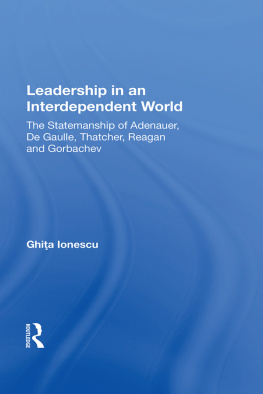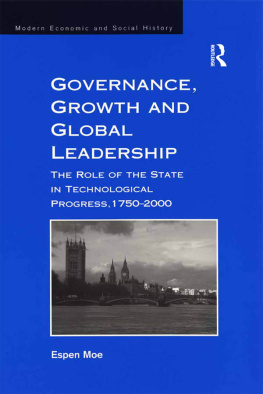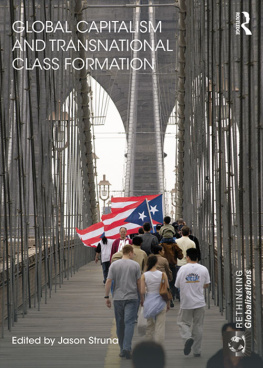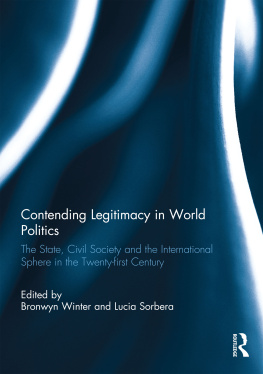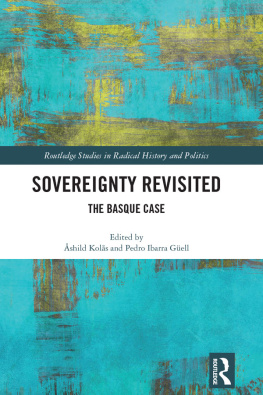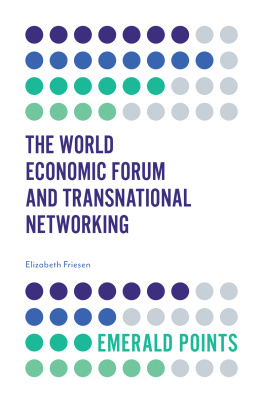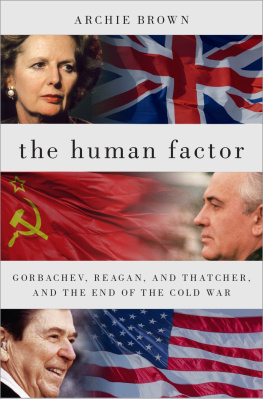Leadership in an Interdependent World: The Statemanship of Adenauer, De Gaulle, Thatcher, Reagan and Gorbachev
First published 1991 by Westview Press
Published 2018 by Routledge
52 Vanderbilt Avenue, New York, NY 10017
2 Park Square, Milton Park, Abingdon, Oxon OX14 4RN
Routledge is an imprint of the Taylor & Francis Group, an informa business
Copyright Longman Group UK Limited 1991
All rights reserved. No part of this book may be reprinted or reproduced or utilised in any form or by any electronic, mechanical, or other means, now known or hereafter invented, including photocopying and recording, or in any information storage or retrieval system, without permission in writing from the publishers.
Notice:
Product or corporate names may be trademarks or registered trademarks, and are used only for identification and explanation without intent to infringe.
British Library Cataloguing in Publication Data
lonescu, Ghita
Leadership in an interdependent world:
Adenauer, De Gaulle, Thatcher, Reagan and Gorbachev.
1. Government
I. Title
Library of Congress Cataloging in Publication Data
CIP data available upon request
ISBN 13: 978-0-367-00444-6 (hbk)
We are living in an age when people and peoples with an interest in politics are particularly concerned by the question whether their states are losing their absolute sovereignty and are being constrained to submit to transnational, indeed now global interdependence. This book may have the calming effect of showing them with examples of contemporary statesmanship, that there is nothing either new, or wrong, with this change in ultimate political responsibility. At least since the second world war, and the subsequent information revolution, political leaders reputed to be staunch defenders of their states sovereignty, such as Adenauer, de Gaulle, Mrs Thatcher, Reagan, and Gorbachev, have practised the politics of interdependence. As the book attempts to explain, sovereignty has been increasingly relativized and interdependence is the dominant fact of life of modern politics.
The calming effect of such a revelation, if it is one, can be compared with what happens to a patient, told by his physician that what seems to him to be a new and critical condition in his health is in fact a chronic and even hereditary condition which has helped him all his life; or it can be compared with the shock to an old football spectator when he sees that methods of tackling which were considered a foul in his youth have now been incorporated into the rules of the game. But the classic and most appropriate comparison is with Molires hero, Monsieur Jourdain who, eager to learn the art of literature, was told that while certain rules had to be observed in order to write poetry, prose was something which even he spoke whenever he opened his mouth. The realization and acceptance of such surprising facts requires of course a mental double-take, hence the insistence, in each of the essays on each of the five leaders, on the conflicts between tendencies within their own statesmanship, and on modern statesmanship and political judgment in general.
This also explains the many years this book took to write, and the imperfections which it still shows: critics who like to point out textual mistakes will have plenty of opportunities. And this also explains my haste to urge that my friends who so generously helped me to correct as many errors as possible, and who warned me of the dangers inherent in trying to compress into one volume what could well take up whole shelves of books, should be exonerated from all share of responsibility. The errors are all mine.
The list of those who helped me with this book is long and best broken down into different groups. The first comprises those who read most of, or the whole of, the manuscript: Professor Isabel de Madariaga, M. mile Nol, Sir Ian Gilmour, Professor Benjamin Barber, Mr Chris Harrison, and last but certainly not least, my wife, Valence. The second group comprises those friends who helped me with specific parts of the book: Mr. Nicholas Bayne, the OECD and Foreign Office expert on economic problems; Professor Susan Strange on the new philosophy of international political economy; Mr John Campbell, of the Council on Foreign Relations, on the chapter on Reagan and Mr G. E. Llewelyn, Director at the OECD in Paris and author of studies on interdependence. The third group is composed of friends and colleagues with whom I discussed my work in general terms at its inception, and as it progressed: Professors Roger Williams, David Marquand, Geraint Parry, and John Pinder.
I must also express my gratitude to the International Political Science Association, in which, for the last twenty years I have been chairman of the Research Committee on European Unification, and for, and with which, I edited the book Sovereignty and Integration ; to the European Commission, for and with which I undertook many research projects and edited the book The European Alternatives ; to the European Parliament, where I conducted in 1989, with the help of a great number of Euro-MPs and EP experts, an inquiry into the transition from the national to the European political judgement; and to the OECD in Paris.
In a different way, I have great pleasure in expressing my gratitude to the Leverhulme Foundation for a very generous grant at the very beginning of this work and I apologize for producing it after so long a time.
For more technical reasons I am grateful to my colleague on Government and Opposition , Mrs Rosalind Jones, and to Joy Cash, from Longmans, who have all shown such patience and kind attention during the long and painful gestation. And I also thank the staffs of the libraries of the Royal Institute of International Affairs, the London School of Economics, the University of Manchester, and the London Library for their help in many ways.
G.I.
Manchester, December 1990
Where is the wisdom we have lost in knowledge?
Where is the knowledge we have lost in information?
T. S. Eliot
In both form and substance this book is an inquiry into modern statesmanship or into statesmanship in the age of interdependence.
In form, it consists of an examination, even if brief, of the statesmanship of five people, namely Konrad Adenauer, Charles de Gaulle, Mrs Margaret Thatcher, Ronald Reagan and Mikhail Gorbachev, with special reference to the way in which they adapted themselves to the new policies of interdependence. These five personalities deserve to be called statesmen because they fulfilled the conditions which, ever since Plato first compared the two, distinguished them from mere politicians. Thus they all stayed in power for a long time an average of a decade for the first four, while in his first five years Gorbachev has moved at breath-taking speed; during their period in government they have all frequently proved their courage and decisiveness, as well as the consistency of their political aims; and because of their achievements they have succeeded in leaving a mark on the history of their respective states, as well as on world history, commensurate with the importance of their states during the period of some forty-five years (194490) of cold war in which they were active. All these qualities are essential to statesmanship.

